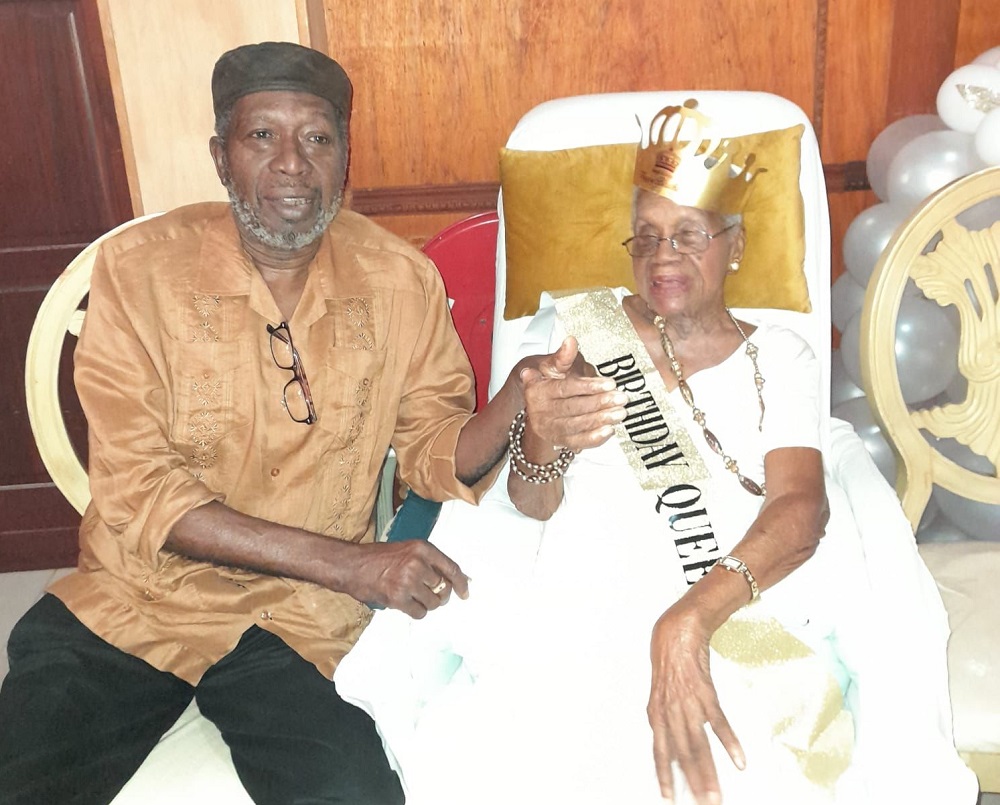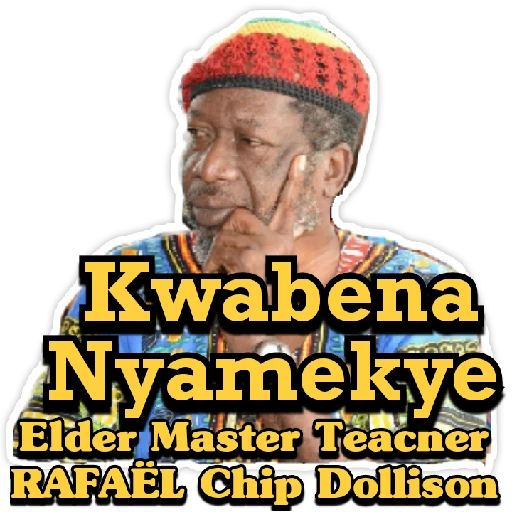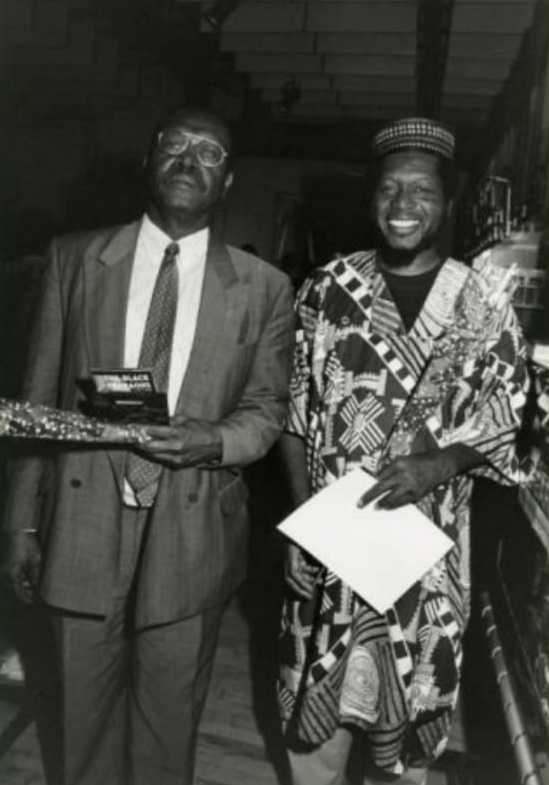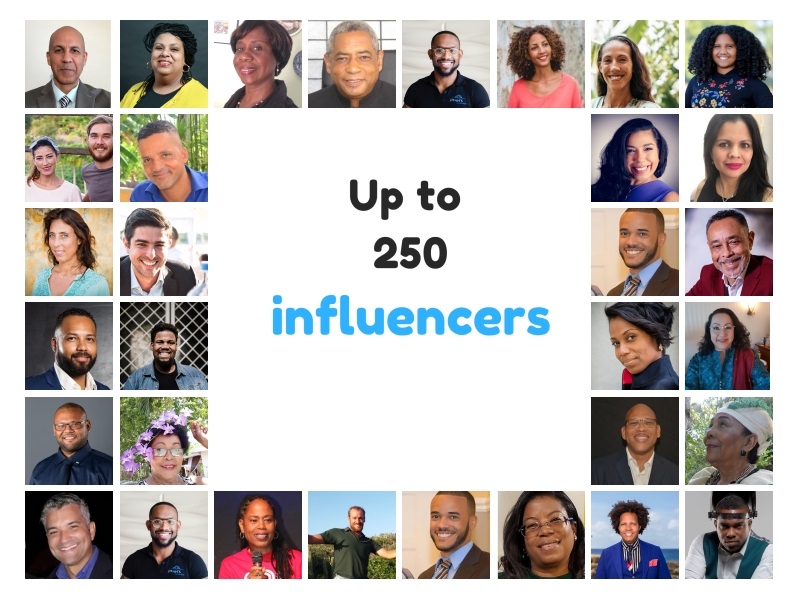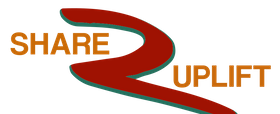Influencer Rafael ‘Chipp’ Dollison
Interview February 2023

Could you share with us some information about your family life?
I was born in Curaçao. But, I am a citizen of the world. In Ghana, my name is ‘Kwabena Nyakyme’. I have lived in Curaçao, Aruba, Holland, Saint Martin, and in different African countries like Kenya, Uganda, Ghana, and Nigeria.
I have researched my ancestors and my family tree. From my father’s side, I could trace back my ancestors to the year 1712, in a village in Nigeria Ile-ife. It still exits. My mother is traced back and came from England. I have 8 siblings from my mother’s side and 7 siblings from my father’s side. I am married and I have 6 children that I have raised. Some of my siblings live in Brooklyn USA and not in Holland. Do you know how many people of Antillean descent live in Brooklyn? I grew up in an extended family of 10, so raising other children that were not my biological was not something strange to me, as we were raised in a family where we cared for each other’s children. My mother used to say: “Son, I do what I can do”. My ancestors from my father’s side came from Santiago de Cuba, my father was born in San Pedro de Makoris in Santo Domingo, and ended up in Saint Martin. My mother came from Saint Eustatius. I was the only child my mother and father had together.
How supportive were your parents in letting you become who you are right now? Anything else of your family life?
The person I am today is because of my parents who didn’t object to anything I wanted to undertake. My mother still lives, she is 100 years old now. She used to read “Ebony” and through her, I developed my interest in black and colored people. My father taught me: “Don’t be afraid of no one. If there is a danger just suggest leaving and coming back later, don’t do anything impulsively”. My father was the super judge in the family, where the family ties were very strong. If there was any issue that needed to be resolved, he had the last word and decision on this. He would listen respectfully to all sides first and then take a decision that was bonding to the whole family. My father and mother had a friend that after 10 years of trying, couldn’t bear a child. So, they arranged a child for her and three months later she became pregnant with her own child. The child that was given to her to be raised, grew up having two mothers her own biological mother and the one that raised her. When one of the nephews had a problem with his grandfather, he asked to come in and live with me, which I accepted. That is how strong are family bonds are and how much we care for each other. That is contrary to way back in the times of slavery, when attachment in the family was problematic, as you never knew when they would sell your child.
Could you share something about your educational background and your experience?
In Curaçao and Aruba:
I attended school in Curaçao, but also in Aruba. My father works in the construction sector and in Aruba, my political consciousness started to develop there. As there were a lot of people from Trinidad working at the Lago, in the Seaman’s club I overheard them when they talked politics and talked about Fidel Castro, Trujillo, and Che Gueverra and a lot of them had issues with their residence permits. My father was born in San Pedro de Makoris and when he had a child they would bring their child to Saint Martin and from there on to Aruba or Curaçao. My mother that came from Saint Eustatius used to listen to speeches from Fidel Castro that lasted for 8 hours. Maurice Bishop from Grenada was born in Aruba. Betico Croes his political emancipation movement was influenced by that. In Curaçao, this didn’t exist as strongly.
When my father decided to migrate, and move to the USA, he send me to Curaçao back to in due course bring me over to the USA. I didn’t want to go to the USA, but some of my siblings did go to the USA. I attended my secondary school level in Curaçao at the Sint Thomas College, it is then that I started to train in track and field. I loved sports, and also played basketball at a high level. In track and field, I experienced that depending on your family ties, it was decided how far you could travel in the international track and field competitions. After I finished High School, I choose to go to Holland by the end of 1970/ beginning of 1971 I paid for my ticket and left for Holland by boat.
In Holland:
In Holland, after working in all sorts of jobs I decided to continue my studies in the evening hours 3 times a week, as I worked during the day. I studied social work at a Social Academy that Siegfried Victorina started with some other people, based on non-western sociology. I was meeting all sorts of people during my study from all sorts of backgrounds. I was working in a Juvenile Detention Center during daytime and I met a lot of Vietnamese people that had different cultures, and they had different ways of being disciplined. To punish a Vietnamese child to go to his room is a relief, not a punishment. In the prison, the detainees wanted to go where I was doing my work in prison, just to meet me.
In those days behavioral science had a hard time understanding this. I also experienced how biased the legal system was, where a native was sentenced to 6 months and it was seen more as bad boy behavior, and an immigrant was sentenced to 18 months for a similar assault case. It triggered me that they use to tell me that I don’t have a culture as they have with Beethoven and I would ask them if they would know ‘Babalu’ a local singer…as Europeans, they have raped women all over the world and is that a sophisticated culture?
But as time passed we were beginning to get more and more influence as immigrants in their way of thinking, the food, we were invited to explain our point of view in the Tweede Kamer, and “Jambee drùms”, a drum therapy, was being accepted ultimately as an effective therapy and where it was applied there were no in-fights anymore.



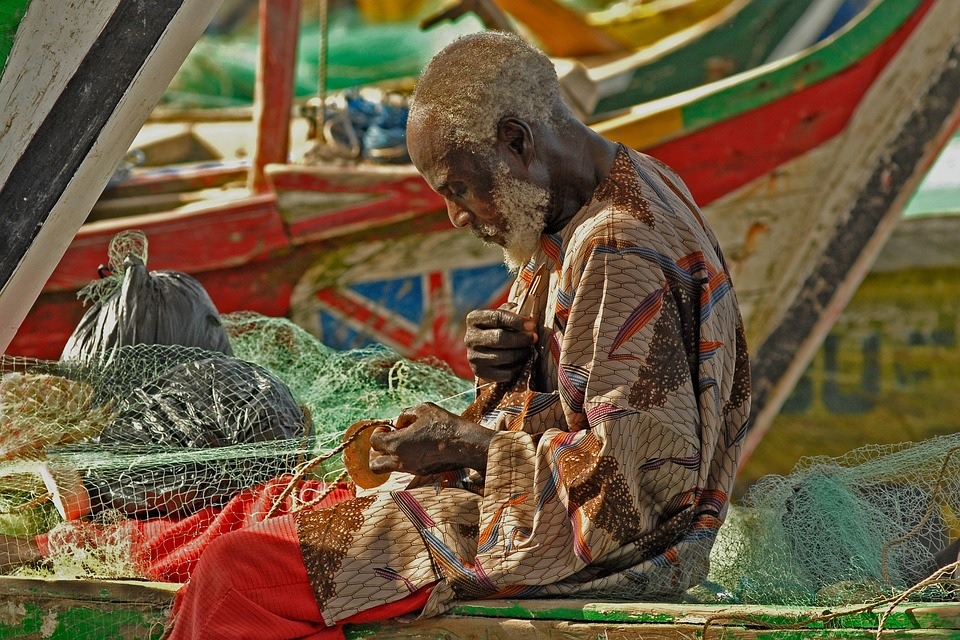
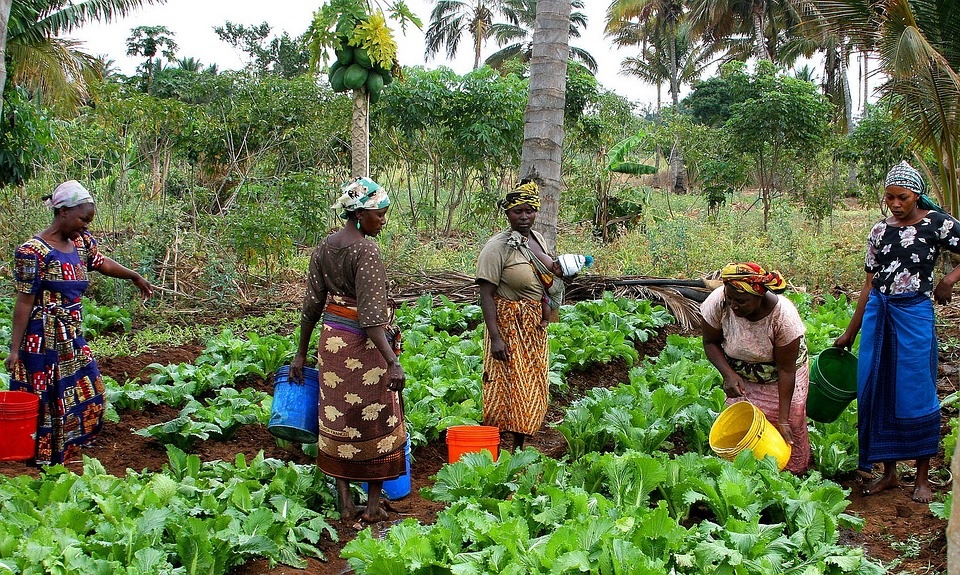
In Africa:
I ended up in Africa as I watched on the news that someone died as he had hidden in the wheels of an airline, where he froze to death. I called the news agency as I was curious and wanted to know from what country he was coming. I turned out to be in Tanzania. So I decided to take two months to leave and went to Tanzania, as I wanted to find out what was happening. After two months, I quit and never went back to my old job. They thought I was crazy. I went to an area where Kenya, Uganda, and Tanzania are very close to each other and after 6 months returned to Holland and worked as a substitute for 3 to 4 months, and returned to Africa for three years. I was recruited to lead a newly opened prison in Veenhuizen, with almost 200 juvenile delinquents. This new position would be challenging and I was not welcomed by all, but did it anyway, as someone told me that I was “entering a lion cage”. I answered him, “I was a lion tamer”. I formed my management team, and also added so non-natives to the team.
But cultural differences also exist in Curaçao where I was asked by a former Minister of Justice to look around in the Youth Detention Center (G.O.G). There I saw a lot of things that were not allowed to be brought outside in the public. The Church also plays a big role in society. I also noticed that the color of your skin still determines your social status a lot. So, I can compare.
What is your BIG WHY or driving motivation to be who you are right now?
I have become aware that the history that I was taught, is a big lie.
I have done my research and have gone through my own experiences and I have noticed how many black people have contributed to science and humanity, while this is erased in the history books that I was taught. This western, Euro-Centered school of thought has done and is still doing so much harm to humanity and the world. We are cutting the forests in the Amazon, polluting our oceans, and in large parts of the world the air is very polluted. While “indigenous”
people had and have so much wisdom that is being denied. My Why, is to unmask these lies and empower black and other non-white people that they can, yes they too can achieve so much more than they were taught to believe that they can. That is where I am spending my attention on. I do my research and speak out the truth.
What are your plans for the coming 5 years with life, let us say 5 years from now?
I will be living my life as healthy as possible and 5 years from now I will be living on the African continent, close to a river, in the countryside, not in a city.
What are the challenges that you are dealing with? And how are you dealing with these different challenges you confront?
Accepting that I can fall, but that I have to stand up again, and continue doing what I was doing with some tweaks, recognizing the lesson to be learned. But never think that it isn’t possible.
Do you use your inner voice to evaluate when dilemmas show up? How does that work for you?
We are good friends with one another. I ask myself questions and I get the answers. My mother used to talk with herself and when you would ask her with whom she was talking she would answer, “myself”. I am God having a human experience. I know that ultimately, I will end up back to the Source where I came from and this life is an experience. One of my daughters came one day and told me she had a dream where grandfather was dancing and the next day we were informed that my father had passed away.
I do think that Curaçao is losing its soul, these days people are going wild over Carnival. Some are so eager and longing for luxuries. I am working on having some youth go to Sankofa, and follow the mythology and then look ahead. Sankofa is an African word from the Akan tribe in Ghana. The literal translation of the word and the symbol is “it is not taboo to fetch what is at risk of being left behind.” To the Akan, it is this wisdom in learning from the past which ensures a strong future.
What are your strengths?
• I am fearless when I go in a certain direction or place. I went to Tanzania without knowing no one.
• I face issues.
• I am curious, that is to a certain extent.
Do you have hobbies or interests that you are also passionate about?
• I love Afrocentric history.
• I read a lot and I had contacts with lots of scholars like the late Dr. Richenel Bennet.
• I love to inform and talk with people about their health.
If you as Chip would meet a stranger on the bus (let’s say in Nairobi) and they would ask you to introduce yourself, what would you answer?
I would greet people with “Jambo.” If I would meet a Muslim, I would greet them with “Sala Malaikum.” Then start communicating.
How would you describe Chipp in one word or one sentence?
I love life and I live simply in a small village without a TV or material things.
Who are the persons that have inspired you the most in your career?
Malcolm X, Huey Newton, C.L.A. James (A Caribbean author)
What is a trait that is still a work in progress?
Writing in Papiamentu, I never did learn this and those I ask to help me don’t have the time to do it.
What was a defining moment in your life?
When I had a car accident and had to grab my oldest daughter in my arms to protect her from the impact. I felt that something had happened to my neck and I was discussing this with the medical staff when Prof. Bos came by and send me immediately to the Operating Room, where I was operated on immediately. My inner voice was telling me that something was wrong, and I always follow my inner voice. The bones in my spinal cord were pressed together.
What would you want your Loved Ones, family, friends, and others to say about you let’s say 20 years from now?
I want to become at least 93 years old. My father was 95 years when he passed away. My mother is still alive and she is 100 years old. My children are constantly asking me to write down the experiences I had of all the places I visited. They offered to tell it as it comes out and they will tape it and later on edit it. It expresses how they appreciate me now and over 20 years from now.
This appreciation was also expressed as I was honored the Rosa Parks Award for Black men, which is an emancipation price offered by a women’s organization called Sophiedela in 1997.
I will continue to be involved in black emancipation projects, comparable with my involvements in setting up slave monuments in Oosterpark, Amsterdam and in Zeeland. This at times has triggered resistance.
But in the end they will still say that I am “an Elder Master teacher”.
What makes you stay optimistic about the future of Curaçao as we are in the middle of a worldwide pandemic and recession and growing environmental challenges because of the consequences of global warming?
I am not so optimistic about the future of Curaçao or else things have to become very bad first, so that it will shake us up to see the reality that we are in and this increased awareness will let us grow positively.
I see an increase in “ego-ism”, we want more material things and we are too focused on “money-making” for ourselves instead of making money for all of us.
Our politicians are not aware that they are in their position to serve the people, instead of acting like the people need to serve them.
We have what I call, a “Euro-virus” that is affecting us. We are arguing a lot about non-important issues and not dealing with our real challenges. We have an economy where our food is mostly imported, in that sense we are one of the few Caribbean islands that are so dependent.
We are too focused on Holland, while the world is much more than Holland. We need to widen our perspective and study in different other countries instead of solely studying in Holland. And the way we treat our Papiamentu, our mother language for most of us in our schools, is not what I should be.
Or maybe things have to get worse first, before we can work towards a better future.
One of the 250 Influencers
Rafael ‘Chipp’ Dollison is a curious, fearless, connected, wise, humble, family-centered, social worker and Elder Master teacher that is very aware of his black African heritage. Over the years, he has become aware of the lies that he was taught by what he calls a “Euro Centered” worldview. Through his own experiences in especially Africa, his connection with scholars, and his reading Chipp, has become knowledgeable on Afrocentric history. He has become aware of the many contributions of black people to science and humanity, while this is erased in the history books that he was taught. This has inspired him to now dedicate his life to unmasking these lies and empowering black and other non-white people so that they too can achieve so much more than they were taught to believe that they can. Chipp” has been honored with the Rosa Parks award for Black men, which is an emancipation price offered by a women’s organization called Sophiedela in 1997.
He has been involved in setting up slave monuments in Oosterpark Amsterdam and in Zeeland. Because of his persistence and his vast experiences over the years in doing his research and discovering and sharing the truth we consider Chipp one of the 250 Influencers of Curaçao, representing the History and Cultural sector. Look at the list of the Influencers we have interviewed or reported on, up to now. Look at the list of the Influencers we have interviewed or reported on, up to now.
The goal of the core group of Share2Uplift for 2023
The goal of the Share2Uplift movement is to: “Identify 250 leaders from all walks of life to connect, align and create impactful changes in all walks of life, which includes intergenerational collaboration by the end of 2023.” We will use interviewing Influencers, meet-and-greet events, “train-the-trainers”-programs on “Emotional Mastery” and “Intentionality “as national intervention strategies, to reach this goal on top of our goal to scale up the possibilities to connect, align and create impact via a virtual platform. We believe that by collaborating with Miguel Goede on the virtual Vision 2030 platform, we will accelerate the possibilities to connect the diaspora and others elsewhere in the world and on the island willing to constructively create impactful changes in Curaçao, to join.
As Share2Uplift, we are fully trying to align with this thinking of Center for Curriculum Redesign to promote this agenda in our educational systems and workplace. So, in that sense, we fully support any initiative to make our educational system 21st-century proof.
Share2Uplift aligners are those that:
– Create an inspiring vision of the future;
– Motivate and inspire people to engage with that vision;
– Manage the delivery of the vision;
– Coach and build a team, so that it is more effective at achieving the vision. These criteria are now being polished.
We also consider these 5 values the most important ones for Share2Uplift aligners. They are:
• Peace from within;
• Compassion;
• Respectfulness;
• Integrity;
• Responsibility.
As we will progress towards this goal, we will update you on the progress.
Personal coaching tips
This week we will share some short videos on African culture. We will upload one of these videos every day on our facebook.com/share2uplift page.
Ile-Ife; A trip to the cradle of Yoruba Civilisation – YouTube
How traditional djembe drumming can help heal trauma | Francis Agyakwa | TEDxMileHigh – YouTube
The Meaning of Sankofa – YouTube
SANKOFA: Going back to fetch your inner voice | Derise Tolliver Atta | TEDxDePaulUniversity – YouTube
An introduction to the discipline of Anthropology – YouTube
Ubuntu: The Essence of Being Human – YouTube
